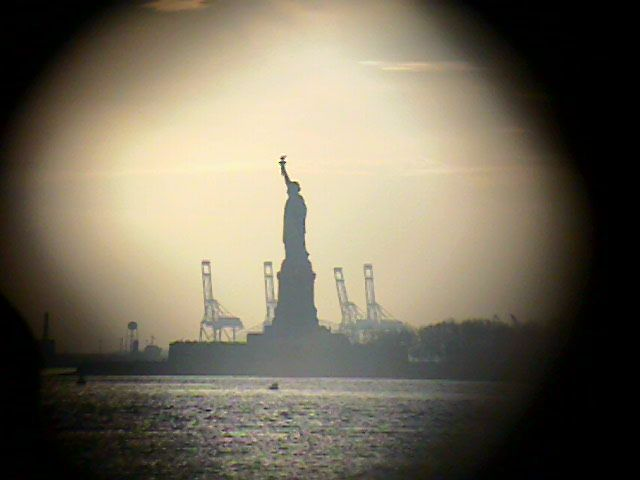|
|
LITR 4333 American Immigrant Literature 2009 final exam sample |
|
Christine Pearson
The Arrival of German Immigrants to America
As I began this course about American Immigrant Literature, I began wondering who I really was. I do not mean my ideals, or ultimate beliefs and drives, I mean where did the people of my heritage, my past, truly begin their quest in life? That is why my decision to research the beginning of German immigration to America is important to me.
I read several pieces of text, relating to this topic. For instance, a web article, entitled German Immigration, describes a little about the usage of the word German (“German Immigration” 1). This is important to recognize because it may give the reader an insight about why some of this specific culture, began arriving in America around 1683. According to this article, the original borders of German territory are unclear, “because of the changing boundaries of the state of Germany and other Germanic nations” (1). Therefore, to be considered German means to be from an area that the German language is prevalent (1). History shows that during the 1800’s, Germany today was made up of smaller states, which in turn, were under the leadership of princes (1). Later, empires gained control and limited the political control of these states, if any (1). This explains, somewhat, the reason why this author relates to Germany as the German states, because of the changing terrain (1). This can be useful in the understanding of why this culture is so common in America today. Regardless of the reason of immigration, this article shows a connection between all immigrants. For whatever reason a person decides to leave their homeland, for instance because of religious freedoms or war and politics, as seen here in the beginning, one thing seems to be similar; the experience is not an easy one. This text shows the peak of German migration around the 1860’s and 70’s (1). Many of these early individuals were from rural areas, which were affected by industrialism. These individuals were forced to find other means of survival and work. The cities of German states became heavy populated; therefore, some sought immigration as an alternative (1). As many Germans began arriving in America, Minnesota became a popular place to settle.
Another text I read was an article entitled German Immigration, as well; which is sponsored by The National Archives Learning Curve (1). This information mainly described German immigrants personally, who help lead the German experience in America, and who became a voice for the German culture. Likewise, this text also speaks of contributions and careers that some German descent individuals were a part of. For example, a man named Francis Daniel Pastorius is mentioned as coming to America, leading a group of 12 additional Quakers families as well (1). These groups of immigrants are accredited with the first German settlement called German Town. Interestingly, Pastorius was against slavery, and banned it in this settlement. Some of the experiences that future immigrants had were religious oppression, and disease, and cultural detachment, not just from assimilation, but also because of World War I. (1). Some individuals went as far as to change their names completely, not because of translation, but because of not wanting to be connected with Germany and its negative acts. The rest of the article shows inserts of letters and text written of experiences from native-born Germans, who came to America.
Immigration: The Germans is another depiction of the early arrival of German immigrants. This text speaks of the reoccurring reasons for most German immigration, being religion, war, and economics; however, it places a little more importance on “violent conditions” (1). Though this information is short in text, it gives a look at the overall religion preferences of the German immigrants (1). It seems that the majority of German immigrants were considered Protestants, particularly Lutheran. One-third of the overall immigrants were affiliated with Catholicism, and approximately 250,00 at one time were Jewish (1). This is important because as these individuals are immigrating to America, America itself is becoming formed by those who want religious “freedoms”. . . .
Though my research has not turned up where my ancestors originated from in Europe, yet, I feel more of a connection to my family as well as to all citizens of the U.S. I think that the awareness of my culture and heritage makes me a better citizen, neighbor, and over all person, because though it is easy to say that we are all individuals and each of us are different, we are also all connected, from the beginning of time (Exodus story) until now, in America, as Americans.
Works Cited
"German Immigration." History of Minnesota. Web. 11 Nov. 2009.
"German Immigration." The National Archives Learning Curve. The National aAchives. Web. 11 Nov. 2009.
"Immigration: The Germans." Immigration The Journey to America. Think Quest. Web. 19 Nov. 2009.
"Immigration Timeline." Immigration the living Mosaic of People, Culture & Hope. Think Quest. Web. 11 Nov. 2009.
|
|
|
|


